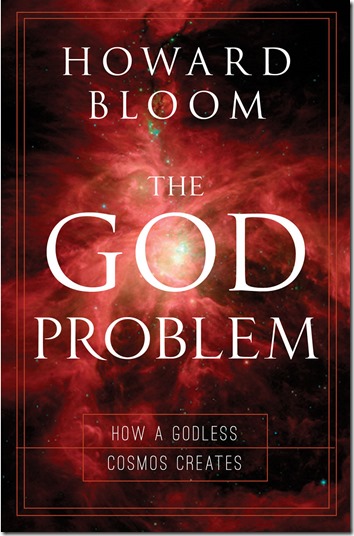Generally, when I discover a great science book, it’s through accident, rather than intent, and usually it’s a couple years after it originally appeared. Popular science books seldom become beach reads that everyone talks about. Maybe I should say never, because I can’t name one. Even though our culture is massively tech driven, science isn’t popular like football or superhero movies. It’s a darn shame that science books don’t get the press that Kim Kardashian does! What I’d like is a handful of science book review sites to read weekly, and when a book gets praised on many of them, I’d know what to read right away.
Quite often I’ll visit one of my two favorite bookstores and check out the science book section and see many new science books that look appealing, but I’m afraid to buy them without knowing more. Over the years I’ve bought several science or science history books that I later discovered were not very well received. What I need to do is read reviews before I go shopping, so I’ll know something about the new science books.
Since Google is our best friend, I started with a search on: science book reviews.
At the top of the search results is book reviews at Science Magazine. Ah, an obvious choice! But before I could get too excited, I was quickly reminded that Science is rather parsimonious with its words. You have to be a subscriber to read the full text reviews. However, they do give yearly listings of book reviews with links to Amazon, where I can read the customer reviews. Here’s the list for 2013. Overall, I’d stay it’s not worth the visit though, especially since many of the book are expensive academic books I’d never buy, like The World in the Model by Mary S. Morgan, which does sounds great though. Although I did spot a couple books I’m going to keep my eye out to find.
What Did The Romans Know? An Inquiry into Science and Worldmaking by Daryn Lehoux.
Faking It – Manipulated Photography Before Photoshop by Mia Fineman
Second in the Google returns is The Guardian: Science Book Reviews. Now these popular science books are more my speed. Right off the bat it reviews two books I want to read. However, it’s not exactly what I’m looking for either. The Guardian provides a rather hodgepodge look at science books. What I’d really like is a site that covers each week’s new published science/math books, pretty much like Entertainment Weekly does for movies, television, music and books. Here’s one book reviewed at The Guardian I’ll buy when it comes out in America 8/1/13.
Farewell To Reality: How Modern Physics Has Betrayed the Search for Scientific Truth by Jim Baggot.
Over at American Scientist, they have a Book Review Links page that attempts to do what I’m doing here, find science book review sites. There I found Download The Universe: The Science Ebook Review. This is a very cool site about science ebooks, both free and priced. I liked this site so much that I subscribed to their RSS feed in Outlook.
Another great site is Edge.org, and their Library page. It’s not really a book review site. Title links go to Amazon, but author links go to pages about the writers, and since Edge.org focuses on interviews, this often leads to book discussions.
I did stumble upon ForeWord Reviews Science Section. One book it reviewed that intrigued me was Software and Mind: The Mechanistic Myth and Its Consequences. But it’s priced out of my reach, and is probably outside my intellectual grasp. But it sure does sound fascinating. I bought The God Problem: How A Godless Cosmos Creates by Howard Bloom because of their review. I’ve always wondered why a universe ruled by the 2nd law of thermodynamics could create such complex systems.
A book I spotted at my favorite bookstore, Before Galileo: The Birth of Modern Science In Medieval Europe by John Freely was very enticing, but I went home empty-handed to read the reviews first. The reviews at Amazon were overall positive, but one made me worry. It claimed the narrative was more like an annotated bibliography. The review at Physics Today was a lot more encouraging. However Nicole Archambeau, the reviewer, claimed she wouldn’t assign it as a textbook, but preferred The History of Science: From Augustine to Galileo. But at Amazon, one of the two reviewers called that book mediocre. But over at the the Wall Street Journal, Laura J. Synder didn’t fuss over Before Galileo much, but did mention a few subjects it covered that made it appealing again. I always find books that make a case that the dark ages weren’t completely dark to be a reason to get on my To-Be-Read pile. But if you follow my links and read the reviews, Before Galilio is a good example of why you don’t just grab an interesting title off the shelf and buy it. I think I’ll wait to see how the Kindle edition will be priced.
Science News has a Bookshelf section on their web with reviews of many books I saw at the bookstore yesterday. They are short reviews, and not good enough to effect a buying decision, but they do list a lot of books worthy of researching to see if they are worth buying. You’d think just looking at Amazon’s New & Notable > Science and Math section would list all the good science and math books that are coming out, but often I see books at the bookstore that aren’t listed there. And, Amazon annoyingly lists books I don’t think belong in the science and math section. However, the Amazon list is one of the most inclusive of all the sources I’ve cited. It makes me wish I could read and digest a science/math book a day, because they offer at least 365 of my-interest-worthy science and math books a year, out of the 1,031,471 that Amazon claim to have for sale.
On average I read about 52 books a year, or one a week. At best, I read one science/math book a month. So you see my problem? If I’ve only got time for 12 books a year, I want to make sure they are the best ones to read. Which brings me back to why I wrote this blog. How do you find the best books on any topic published each year? Normally, you have to wait until next year when all the reviewers pick their favorites. But if you don’t want to wait, then you’ve got to find sites like I mentioned here to figure things out on your own. I always get a kick out of picking books when they come out and then later discovered that many reviewers considered them the best of the year.
JWH – 7/3/13






New Scientist Magazine reviews a bunch of science books every week.
Check out their website or take a look at an issue at your local newsstand.
Unfortunately, the New Scientist Magazine is not free, and most of its content on the web is locked out. Plus NSM has those annoying subscription plans like the NY Times where they charge more if you read it on different devices. That bugs me. Does it really matter if I want to read it on the web, smartphone or tablet? Don’t get me wrong, I like New Scientist. I used to subscribe to the paper edition. I believe magazines should be priced the highest for paper, and then a single lessor amount for any electronic version. Even more annoying, is their subscription page is advertising 12 issue pricing, when it’s a weekly, 52 issue subscription.
Reblogged this on this wider sea and commented:
Great insight into finding good sites to read reviews on NF science books.